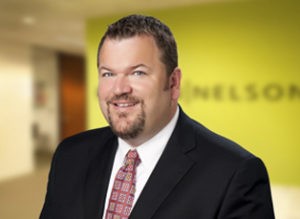 Harry Nelson spoke yesterday on the “Transitions of Care” panel at the 2015 National ACO, Bundled Payment and Readmission Summit. The Summit, organized by the National Readmission Prevention Collaborative, drew more than 400 attendees from around the country to Good Samaritan Hospital in Los Angeles, California. Other penals included discussions of other aspects of readmission prevention, including community integration, home care services, and new tools and resources to support care providers.
Harry Nelson spoke yesterday on the “Transitions of Care” panel at the 2015 National ACO, Bundled Payment and Readmission Summit. The Summit, organized by the National Readmission Prevention Collaborative, drew more than 400 attendees from around the country to Good Samaritan Hospital in Los Angeles, California. Other penals included discussions of other aspects of readmission prevention, including community integration, home care services, and new tools and resources to support care providers.
The “Transitions of Care” panel, moderated by Yoela Palkin of Medigram, focused on care coordination and the challenges for becoming preferred providers in narrow networks, including identifying critical services to enable shorter hospital length of stays and timely discharges, service gaps that delay hospital discharge and trigger preventable readmissions, and leading edge ideas for technology enablement for evolving care goals. Other panelists included Rani Khetarpal of Orange County-based Global Transitional Care, the first Medicare-approved third-party organization for short-term transitional care services (utilizing transitional care codes) and Sam Nimah of Florida-based Special Care Providers, which operates special care units focusing on ventilator-dependent and catastrophically ill patients.
Nelson’s remarks focused on key ways to improve care coordination and prevent a high readmission rate, including ensuring information technology (IT) systems support coordination of care providers in all settings (inside and outside of the hospital) and establishing broader clinical standards for home and post-acute settings. “The key to preventing readmissions is not waiting for things to go wrong, but being proactive in managing the patient’s conditions,” said Nelson. All of the panelists emphasized the need for improved communication.
The discussion also touched on the transition away from LTCH and acute rehab towards other settings. “The broad trend,” commented Nelson, “is that acuity keeps getting pushed downstream. We’ve seen a broad shift to older, sicker patients being treated in the home setting and in assisted living. Hospital at home is becoming a reality, with key support occurring through telemonitoring and private home care.” Nelson also remarked on the need for more attention to HIPAA and data privacy and security compliance, as well as for increased use of analytics. “Medicare and other payors have spent the past decade investing heavily into analytics to mine and map healthcare data and identify problematic trends,” observed Nelson. “Providers need to be making the same investments to improve care and reduce risk.”
For more information/questions regarding any legal matters, please email [email protected] or call .